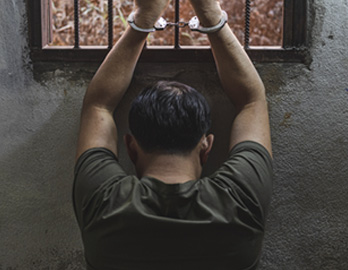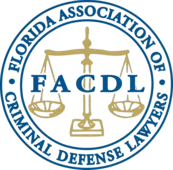Tampa Traumatic Brain Injury Attorney
Tampa Traumatic Brain Injury Lawyer

Suffering a traumatic brain injury in an accident is never easy to handle. The severity and longevity of these injuries can change your life forever. For the communities in Tampa, and in Hillsborough County, and Florida at large, Paul Figueroa Law can help. We can provide the legal services needed to file a personal injury claim regarding your injury.
What Is a Traumatic Brain Injury?
A Traumatic Brain Injury (TBI) is defined as an acquired brain injury brought on by a physical force from the outside. It results in an entire or partial functional disability, a psychosocial impairment, or both. The term refers to mild, moderate, or severe open or closed head injuries that affect one or more of the following abilities:
- Cognitive
- Language
- Cognition
- Attention
- Rationality
- Abstract reasoning
- Judgment
- Problem-solving
- Tactile
- Perceptual
- Motor
These injuries can also affect:
- Psychosocial actions
- Body functions
- Information processing
- Speech abilities
Common Causes of Traumatic Brain Injuries
A traumatic brain injury can happen in many different ways, although car accidents are the leading cause. Car accidents account for about 28% of traumatic brain injuries. Another frequent reason for traumatic brain injury is slip and fall injuries. The likelihood of sustaining a traumatic brain injury from falling is highest among children and the elderly.
Besides car accidents and falls, traumatic brain injuries can be caused by things like everyday activities or falling equipment. Construction zones, businesses going through renovations, or just old building materials can cause significant TBIs if not correctly identified for customers or workers. Other situations can also contribute to traumatic brain injuries. These include walking through an unmarked work zone or getting hit with faulty equipment at a place of business. Regardless of how the injury occurred, if you feel that the injury was due to the negligence or intentional act of another, and you have questions about your legal rights you should speak with an attorney that understands a traumatic brain injury about these injuries. They can help you legal rights and advise you on whether you have a personal injury claim.
Common Symptoms of Traumatic Brain Injuries
Although one of the most typical signs of a brain injury is pain, there are additional signs that might be physical, mental, or even emotional. There are a wide array of effects following a traumatic brain injury. You could present normally for some time before facing more adverse, largely damaging effects, like a stroke or coma. Some common, mild symptoms associated with traumatic brain injuries include:
- Headache
- Nausea or stomach issues
- Fatigue or lethargy
- Speech disorders
- Unsteadiness or balance issues
Sensory issues related to mild traumatic brain injuries can include:
- Alterations in the sense of smell
- Impaired vision
- Tinnitus
- Poor breath
- A terrible taste in the mouth
- Sensitivity to sound or light
Behavioral, cognitive, or mental symptoms related to traumatic brain injuries can include:
- Bouts of unconsciousness or passing out
- No loss of consciousness, but an overwhelming feeling of being puzzled, confused, or lost
- Issues with attention or memory
- Mood swings or drastic fluctuations in mood
- Anxiety or depression
- Trouble sleeping or more sleep than normal
Any of the warning signs and symptoms of a minor injury, as well as the following signs and symptoms, may arise in the hours or days following a head injury. They can indicate intermediate to severe traumatic brain injuries. Physical symptoms for more severe injuries include:
- Loss of consciousness that lasts for hours or more
- Headaches that do not go away or become worse
- Repeated nausea or vomiting
- Seizures or tremors
- Pupil dilation
- Clear liquids coming out of the ears or nose
- Having trouble waking up from sleep
- Feeling weak or numb in your fingers and toes
- Inability to control coordination
Cognitive symptoms include:
- Excessive feelings of confusion
- Slurring speech
- Uncharacteristic behavior, like heightened agitation or sadness
- Comas
The symptoms of a traumatic brain injury, because they are so serious, can be life-threatening if not treated. The mind is very complex. Symptoms of your injury could be immediate or appear suddenly a long time after your injury. As soon as you experience any head trauma, it is essential to speak to a licensed doctor or physician for a diagnosis. From there, speaking with a personal injury lawyer about your experience, including how you received your head trauma, can assist you in understanding your rights prior to deciding whether to start the personal injury claims process.
What Are the 7 Types of Traumatic Brain Injuries?
The causes of traumatic brain injuries can range based on environment and situation. For personal injury cases, these injuries can arise from car accidents or slip and fall injuries. They can even come from unmarked construction zones that do not warn against falling objects. Some of the most common types of TBIs that result from these accidents include:
- Concussions: The most frequent kind of traumatic brain damage is a concussion. Your brain travels in the direction of a powerful force until it comes into contact with your skull. It injures you when it does. Concussions were once thought of as minor inconveniences, but physicians now treat them seriously. The effects of a concussion can be moderate to severe, and in some situations, they might even last a lifetime. Post-concussion syndrome has most likely occurred if concussion symptoms last for more than a month. Thankfully, there are post-concussion syndrome therapies that can help you control this illness. Successive concussions can cause second-impact syndrome. This makes further brain injuries more likely to cause serious damage based on prior injuries.
- Contusions: Brain contusions can frequently come with concussions. A contusion is simply a bruise on your brain and is considered a minor sort of bleeding in most cases. A coup-contrecoup is one sort of contusion that occurs when there is damage to two different areas of the brain. A hematoma can develop from a contusion if it cannot heal by itself. It must be surgically removed by a doctor. A contusion’s size, location, and duration all affect how much harm it does.
- Brain Hemorrhages: Unregulated bleeding on the brain’s surface or within the brain tissue is referred to as a brain hemorrhage. Subarachnoid hemorrhages are those that happen in the areas around the brain. Intracerebral hemorrhages are those that start inside the cerebral tissue. One of the many varieties of focused traumatic brain injuries is a hemorrhage. Localized wounds that only damage a certain area of the brain are called focal brain injuries. Although these injuries often result in less significant damage than other kinds of TBI, they may still be fatal if not treated right away.
- Intracranial Hematomas: Blood clumps outside of blood arteries are called hematomas. If left untreated, large hematomas in the brain can cause major harm and even death. Brain hematomas can take many different forms, such as:
- Intracerebral Hematomas: These are collections of blood inside the brain.
- Subdural Hematomas: These occur when blood accumulates beneath the thin protective layer surrounding the brain.
- Epidural Hematomas: These occur when blood accumulates between the skull and the brain.
Hematomas can occasionally take days or even weeks to form following a head injury. Vomiting, excruciating headaches, uneven pupil diameters, and impaired speech are hematoma symptoms. If, after a brain injury, you have any of these symptoms, consult your doctor immediately.
- Coup-Contrecoup Brain Injury: A coup-contrecoup injury is a severe kind of traumatic brain damage. The French words for “blow” and “counterblow” are coup and contrecoup. As a result, a coup-contrecoup injury is essentially the combination of two distinct injuries. A coup injury develops immediately after the point of contact. The contrecoup damage develops on the opposite part of the brain from the impact site. Most coup-contrecoup accidents result in brain trauma when the victim’s head strikes a fixed item, like a steering wheel. The brain goes forward when the skull strikes the item until it slams against the front of the cranium. Because of the force of the hit, it then impacts the rear of the skull after rebounding off the front.
- Diffuse Axonal Injury: One of the most severe forms of traumatic brain damage is diffuse axonal injury. A diffuse axonal injury happens when the brain is jostled or contorted inside the skull. The cerebral tissue moves back and forth as the brain twists, causing the lengthy axons, the brain’s connecting fibers, to rip. The medical community calls this “axonal shearing.” Loss of function results from axonal shearing, which messes up the messages that neurons send. It can be challenging to find diffuse axonal injuries on an MRI since most of them only generate tiny rips. The size and location of the incisions affect how severe the symptoms are in a diffuse axonal injury. The consequences will be more severe the more axons that are torn.
- Penetrating Brain Injury: These wounds develop when an item, usually something sharp, pierces the skull and brain. Compared to people who have had other types of brain injuries, those with penetrating head injuries often have seizures. They are also significantly more likely to develop epilepsy following their TBI. Never attempt to remove an item from someone’s skull before a medical evaluation. Doing so might exacerbate the bleeding and worsen the injury.
These injuries are increasingly dangerous to sustain. If any are left untreated, they can become deadly. Although a first-time concussion from a minor car accident can be considered mild, this injury can put you at risk of developing more adverse, life-threatening symptoms. If you or a loved one gets injured in an accident, or sustains a TBI due to the negligence of another party, consult a Tampa brain injury lawyer to help you understand what your rights are and what potential claims you may have.
How Do You Prove a Traumatic Brain Injury Case?
The most typical method of establishing responsibility for an accident is through the legal principle of negligence. When you prove someone was negligent, you are demonstrating that they acted in a way that put you in danger. The biggest parts of determining negligence are as follows:
- Breach of Duty of Care: A “breach” is an act or error that violates the standards set out by someone’s duty of care. Someone has violated their duty of care if they abruptly change lanes. Another example would be a store clerk who forgets to post a warning about a damp floor. It may take a considerable investigation to show that a breach happened. A driving incident that results in a traumatic brain injury is one instance. The police report could first find that no one was at fault when initially filed. However, a skilled traumatic brain injury attorney understands the need to investigate further. To strengthen their client’s case, they will likely do additional investigation such as make preservation requests, this could also include interviewing witnesses, requesting police reports, or locating any dashboard camera footage of the event. This could demonstrate that the irresponsible driver was the cause of the collision.
- Proving the Proximate Cause of Injury: The most immediate cause of an injury is called its “proximate” cause. Someone’s duty violation must have caused you harm before they can be deemed to have been negligent. For instance, a traumatic brain injury results from a slip and fall accident at a grocery store. A personal injury lawyer’s principal concern is demonstrating that the store’s carelessness was the reason the spill was not marked. However, if an unidentified leak was the actual source of the puddle, potentially not a breach of a duty owed to the injured party, that may be insufficient to prove proximate causation.
- Assessing Damages: Every loss suffered in a personal injury case is referred to as “damages.” The most typical traumatic brain injury damages include emergency medical care, such as transportation, diagnostics, hospital stays, etc. It also includes post-treatment care, such as long-term therapy for a temporary or irreversible handicap. Out-of-pocket expenses directly connected to the accident, such as vehicle rental charges, etc., as well as pain and suffering are included in damages payments. These payments can be higher if the victim is permanently disabled or loses their capacity to conduct specific tasks. Lost earnings refer to the wages lost while someone was injured. Punitive damages may also be awarded in situations where the defendant’s negligence or intentional act was excessively severe. The court may determine that others must be deterred from acting in the same way.
It may seem hard to prove negligence when pursuing a personal injury claim for a TBI. Speaking with an experienced personal injury lawyer can help you gain more perspective on your situation. They can show you what is needed to prove your case. A personal injury lawyer can help you file a personal injury claim. This allows you to seek damages from the driver responsible for the accident.
How Are Punitive Damages Worked Into a TBI Settlement?
Punitive damages are those given to the plaintiff when a defendant is found to have acted with gross negligence, maliciousness, or fraud. The rules in each state vary on this subject. However, they are not intended to compensate you or repay you. Rather, they are meant to penalize the individual who caused your injury. Keep in mind that you must first satisfy the standards set out by the state before you may seek punitive damages. The Florida punitive damages legislation permits punitive damages up to $500,000, or a maximum of three times the value of compensatory damages in most cases.
Finding a Tampa Personal Injury Attorney for Traumatic Brain Injuries
TBIs are extremely dangerous and can change your life. Sustaining these injuries due to the negligence of another party is exceedingly stressful. Finding a personal injury lawyer to help you sue for necessary damages can help you regain some stability while in recovery. For those in Tampa, Paul Figueroa Law can provide the legal help you need to investigate and pursue these claims. For more information on our practice, visit our website and contact us today.
If you are currently facing a legal situation or have questions about your legal rights, don’t wait until it’s too late. Call (813) 213-0000 now or fill out our CONTACT form to speak with an experienced attorney who can guide you through the legal process and get you the help you need to protect your future.









